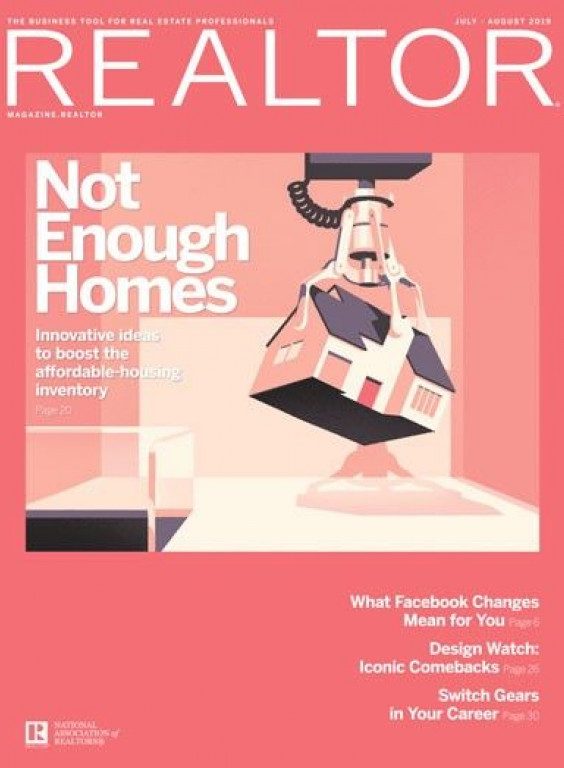Facebook’s aim to become a “digital living room,” making users’ networks smaller and more private, may require a change in your social media strategy to remain visible to current and prospective clients online. It will take time to know the full impact of the social network’s latest shift, announced in March, which prioritizes private messaging and Facebook groups over other content. But the intent, like other recent Facebook changes, is to limit users’ exposure to posts generated outside their inner circles. That makes it harder to reach audiences organically.
One strategy is to become more active in Facebook groups, which already engage 400 million of the social network’s 2.4 billion users. Join local real estate-related groups, where you’re likely to encounter potential buyers and sellers in your market. Group interactions present an opportunity for real estate pros who engage in their local communities every day, says Lindsay Listanski, head of national marketing for San Francisco-based brokerage Climb Real Estate. “Agents who understand it’s not all about them, that it’s about participating in the community—will be just fine.”
You also may choose to spend more marketing dollars on Facebook ads in order to reach your target audience. “Organic reach is at an all-time low, and in order for people to see your content, it’s all pay-for-play through social advertising,” Listanski says. Before opening your pocketbook, though, consider a few strategies that can boost your visibility on social media.
Make proper use of other photo-driven platforms. Instagram and Pinterest, for example, are strong mediums for showcasing photography, which is the most critical component of your marketing. Focus on presenting listing photos and short stories about your properties on these platforms while using Facebook more for making authentic connections in groups. “If you have great photos and a knack for storytelling, [Instagram is] a platform that’s made for you,” Listanski says.
Share more video content. Facebook favors serving video content—especially Facebook Live—to its users. If your videos are compelling and informative, you’ll likely end up in more of your followers’ feeds. Betti Russo, ABR, managing broker at Realty Executives Exceptional, REALTORS®, in Oakland, N.J., began a weekly Facebook video series in January focusing on topics such as FSBOs and vacation homes. In that time, her video views have grown from only a handful to about 1,100 per video. Though she also shares her videos on Instagram, YouTube, LinkedIn, Pinterest, and Twitter, “most of my traffic comes from Facebook,” Russo says. “What’s important is to be consistent. Have a plan and a schedule, and it becomes like brushing your teeth every day.”
Join a variety of Facebook groups. In addition to real estate groups, get involved in online communities centered on other topics that are relevant to you. This will give you an opportunity to be more authentic in your interactions—instead of selling yourself as a real estate pro—which is the purpose of social media anyway, says Katie Lance, a social media consultant focusing on real estate. “Join a local group on parenting or photography—nothing to do with real estate—and connect with people over things that are personal,” Lance says. “Remember that social media is a marathon and not a sprint.”
Provide extra value to make your posts more shareable. Even if your organic reach decreases, those who do see your posts will be more likely to share them with others if they offer educational takeaways for the audience. “Real estate professionals need to think beyond the marketing copy they have posted on the MLS or on their flyer and think more like a storyteller,” Lance says. For example, instead of posting a simple announcement about a new listing, offer some information about your client’s journey to get the home prepared for market, along with some practical tips for sellers. Your followers are more likely to share such a post with friends and family who may be preparing for a move.
While Facebook’s evolution may cause some pain points, it’s ultimately a step in the right direction for real estate pros, Listanski says. Getting involved in online communities helps practitioners practice the bread and butter of their business: creating relationships, sharing local expertise, and offering guidance to consumers when they need it.




